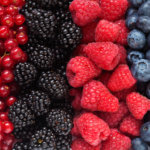Look after your liver

It’s hard to escape media warnings about the dangers of excessive alcohol on our health. You may have decided to join in with the nationwide campaign to Go Sober for October. We all know alcohol puts a strain on our liver. But, what does that actually mean?
The problem in our society is that there’s always an excuse to ‘have a drink’. I admittedly lost a little self-discipline whilst enjoying one of the warmest summers we can remember; what better way to while away the balmy evenings than with a gin and tonic in the garden or an alfresco supper with a glass of wine? That’s not to mention the wonderful holidays when all rules fly out the window. Dare I say, but it won’t be long before the festive season kicks in, and there’s another excuse to self-indulge. But, it’s important to recognise when to enjoy the moment and when to slow down, as once the bad habits settle in the problems arise.
Liver function
The liver is one busy organ and loves to multi-task. Aside from its primary role of detoxifying (more on this later), it fights infection, controls cholesterol levels, assembles proteins, produces essential chemicals and bile to break down fats, whilst storing vitamins, minerals, glucose and fats to be released when needed.
So, it already has enough on its plate. Chardonnay and Chablis pay a visit and all other tasks fall by the wayside. Alcohol is very toxic to the body, so the liver has to prioritise with detoxification. As the toxicity levels build up over time with continued alcohol consumption, the liver has to work harder, and it can’t keep up. The day-to-day housekeeping is abandoned, and the dust starts to collect. If you’re putting this already overworked organ under pressure, can you imagine what it’s doing to the rest of your body?
The cleansing process
Let’s look at liver function in a little more detail and why detoxification is so important. It’s like the quality control of our body; nothing gets past it without being scrutinised. After digestion, blood is transported to the liver to filter everything we have consumed. Every trace of toxic waste including any drugs, chemicals, food additives and alcohol we have consumed is removed. Using a whole host of essential enzymes and antioxidants, the liver transforms these toxins into non-toxic solutions so that they can be safely excreted, preventing contamination. The side effect of this long and complex process is that it produces free radicals, which can cause damage. Glutathione, the most important antioxidant, is then needed to neutralise these free radicals. Your body produces glutathione naturally, but levels can be boosted in a number of ways; one is to take a milk thistle supplement.
Spot the signs
It’s actually hard to tell if your liver is struggling, as it’s very good at just plodding away. Worryingly, you may be given the all-clear by your doctor, as an unhealthy liver doesn’t show up in blood tests until its function is down by 70%. There are a number of signs to indicate it’s in trouble, here are the key ones to look out for:
- Sensitivity to strong smells
- Headaches
- Multiple chemical sensitivities
- Itchy skin, rashes, acne, psoriasis
- Abdominal pain
- Lack of appetite
Understand your unit intake
The first step is to track your weekly intake of alcohol, as the units soon add up. This is a great app to help you https://www.drinkaware.co.uk/.
The recommended weekly intake is 14 units for men and women. If you’re well over this, it might be time to take some action. Have a look on https://www.britishlivertrust.
If you would like some liver support, please book an appointment with me.
Kath’s tips on looking after your liver
Eat well
- Eat plenty of fibre-rich foods to help carry the waste through your system. Fresh fruit, vegetables, oats, beans, pulses, nuts and seeds are all great.
- Apples are particularly good as they contain pectin, which binds to toxins. Aim to eat 1-2 daily (preferably organic).
- Eat plenty of antioxidants. Raw beetroot is brilliant, either spiralized with a squeeze of lemon or in a smoothie. Deep coloured berries and green leafy vegetables are also a good source.
- Turmeric is anti-inflammatory and delicious in smoothies, soups or sprinkled on your porridge.
- Enjoy vegetables from the brassica family (cabbage, broccoli and Brussels sprouts). They contain nutrients that support the enzymes in liver detoxification.
- Try to buy organic fruit and vegetables where possible, otherwise wash well to limit your intake of pesticides and herbicides.
- Drink plenty of green tea; it’s packed with polyphenols, which support the detoxification process.
Some helpful supplements
- Dandelion supports many aspects of liver detoxification. https://kathgriffin.
myllonline.com/licorice_ dandelion_combination_(100) - Try a multi-liver support supplement that contains other beneficial herbs. https://kathgriffin.
myllonline.com/liver_health_ formula_(100).htm - Milk thistle is also a well-known liver supplement. https://www.cytoplan.co.uk/
milk-thistle-silymarin?sqr= milk%20thisl& - N. Acetyl Cysteine (NAC) provides high levels of cysteine (one of the amino acids that makes glutathione). http://www.metabolics.com/n-
acetyl-cysteine-pot-of-60- capsules.html
Try a pre-Christmas cleanse
- The Jason Vale 3-day juice diet is great to give your liver a boost.
- I also thoroughly recommend the 10-day Healthy Starter Pack, which I do once to twice a year.
We live in a very toxic world, but try to avoid:
- Too much alcohol or caffeine.
- Non-steroid anti-inflammatory tablets (NSAIDs) such as ibuprofen.
- Sugary drinks and snacks.
- Cooking with plastic (such as ready meals; try to avoid these anyway!).
